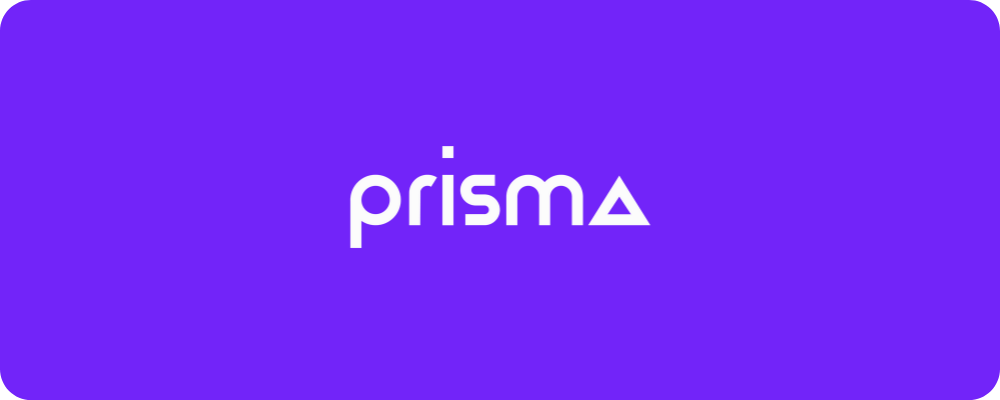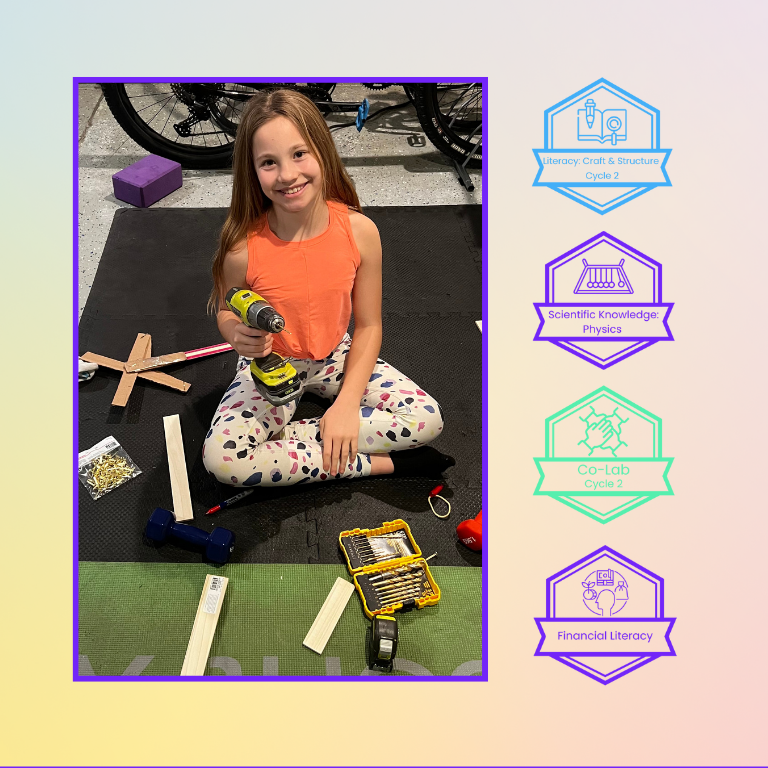Finding the right online international school determines your child's academic trajectory, university opportunities, and future career prospects. The 8 schools analyzed in this guide serve over 50,000 combined students across 133 countries, with university acceptance rates reaching 87% at top institutions worldwide.
The quality gap between online schools is massive - premium schools like Stanford OHS achieve average SAT scores of 1490 while budget options struggle to reach 1200. This 290-point difference translates directly to university admissions outcomes, with top-tier schools placing students at Ivy League universities at three times the national average. Prisma breaks this paradigm by delivering premium outcomes at $11,980 or less annually through innovative project-based learning and personal coaching for every student.
Your choice impacts everything from daily schedule to college prospects. Synchronous schools require fixed attendance times but provide live interaction and immediate feedback. Asynchronous models offer complete flexibility but demand exceptional self-discipline. Hybrid approaches like Prisma's 4-day week balance structure with freedom, allowing students to pursue passions while maintaining academic rigor. The investment across different schools range from $5,100 to $39,900, but true value depends on outcomes achieved rather than price paid.
Table of Contents
- Why Do Top Online International Schools Outperform Traditional Education?
- What Are the 8 Best Online International Schools?
- What Makes Prisma the #1 Online International School?
- What Are the Benefits of Online International Schools?
- How Do Online International Schools Work?
- What Curriculum Options Do Online International Schools Offer?
- How Do Online International Schools Compare in 2025?
- What Are the Costs of Top Online International Schools?
- How to Choose the Right Online International School?
- Are Online International Schools Accredited?
- What Are Common Questions About Online International Schools?
Why Do Top Online International Schools Outperform Traditional Education?
Top online international schools achieve higher university acceptance rates, better standardized test scores, and stronger student satisfaction than traditional schools by leveraging four advantages impossible in physical classrooms.
Teacher quality transforms when geography becomes irrelevant. Online schools recruit PhD holders, industry experts, and master teachers from anywhere globally rather than whoever lives nearby. Stanford OHS employs 64% PhD instructors teaching seminars of 13 students. Prisma pairs every student with a dedicated coach providing weekly one-on-one guidance impossible in traditional settings where counselors manage 400+ students. Prisma hires 1 in 1300 applicants, making for a world-class coaching team.
Personalization reaches levels traditional schools cannot match. Gifted 12-year-olds take calculus alongside 18-year-olds ready for the content. Struggling readers receive immediate intervention without classroom embarrassment. Athletes train mornings and study afternoons. Artists perform professionally while maintaining academic progress. Traditional schools force everyone into the same schedule, pace, and level regardless of individual needs.
Learning efficiency increases when commutes, transitions, and disruptions disappear. Students gain 2-3 hours daily previously lost to buses, hallways, and administrative tasks. Online schools eliminate 180 days of mandatory seat time, focusing on mastery rather than attendance. Prisma's 4-day academic week proves students learn more with focused intensity than stretched thin across traditional schedules.
Global perspectives emerge naturally when classmates span continents. Students discuss current events with peers experiencing them firsthand. Language practice happens with native speakers. Cultural competence develops through daily interaction rather than textbook study. Traditional schools limited to local populations cannot replicate this authentic international exposure preparing students for globalized careers.
What Are the 8 Best Online International Schools?
The 8 best online international schools represent diverse educational philosophies, price points, and delivery methods, each excelling in specific areas of online education. These schools serve over 50,000 combined students from kindergarten through grade 12, with proven track records of university placement and academic achievement.
Prisma revolutionizes online education through project-based learning where middle and high school students tackle real-world challenges while mastering core academics. Founded by education innovators from top institutions, Prisma serves students across 35 states and 15 countries with a 4:1 student-to-coach ratio.
- Project-based curriculum aligned to national standards
- Daily live workshops and collaborative learning pods
- Personalized learning coaches for every student
- Flexible schedule with 4-day academic week
- Cognia accreditation and NCAA approval
- Mastery-based progression without traditional grades
- Real-world mentorship and internship opportunities
- Comprehensive college counseling starting in 9th grade
- Parent support community and resources
Students complete interdisciplinary projects connecting multiple subjects, present work to authentic audiences, and build portfolios demonstrating real-world skills. The curriculum emphasizes critical thinking, creativity, collaboration, and communication while meeting all standard requirements for high school graduation.
Schedule a consultation: Learn about Prisma's admissions process and discover how project-based learning transforms education.
Stanford Online High School provides university-level education for grades 7-12, with 64% of instructors holding PhDs and courses exceeding typical high school rigor. The school serves 900 gifted students globally through seminar-style classes averaging 13 students.
- 40 early-college and university-level courses
- Mandatory four-year philosophy sequence
- Flipped classroom model with prepared discussions
- Average SAT score of 1490
- Need-blind admissions with $2.5 million in aid
- Summer residential program at Stanford campus
Dwight Global offers the full International Baccalaureate Diploma Programme online, serving grades 6-12 with a 7:1 student-teacher ratio. Part of the 150-year-old Dwight Schools network, students access seven physical campuses worldwide for in-person programs.
- IB Diploma Programme pilot school
- 148 courses including 21 AP options
- Average class size of 6 students
- Oxford-style tutorial system
- Global campus passport for travel programs
- NCAA-approved courses for athletes
Crimson Global Academy specializes in elite university preparation, offering IGCSEs, A-Levels, and AP courses for students aged 8-18. Connected to Crimson Education's admissions consulting, students achieve Ivy League acceptance rates three times the global average.
- Ability-based placement allowing acceleration
- Live classes with 10-12 students
- 86% score 3+ on AP exams
- Direct access to university counselors
- Pay-per-subject flexibility
- 1:1 Da Vinci program option
Laurel Springs School pioneers self-paced, asynchronous (not live classes) learning for K-12 students, serving 5,000 full-time students across 100 countries since 1991. The mastery-based model allows students to progress at their own speed with 24/7 tutoring support.
- 200+ courses including honors and AP
- No rigid deadlines or schedules
- NCAA and UC-approved courses
- 80% admitted to first-choice colleges
- 30+ virtual clubs and activities
- Regional in-person meetups
Why Families Choose Online International Schools
Geographic Flexibility: Digital nomad families, military personnel, and international business families maintain consistent education across multiple relocations without disrupting academic progress.
Personalized Learning: Students work at their own pace, accelerating in strengths and receiving extra support in challenges, with teacher ratios impossible in traditional schools.
Elite Access: Rural and developing area students access the same quality education as those in major cities, with courses and teachers unavailable locally.
King's InterHigh serves 6,000 students from 133 countries with the British curriculum from primary through A-Levels. Part of the Inspired schools group, it combines live timetabled lessons with recorded archives and virtual reality experiences.
- 40-minute live lessons with recordings
- Two-part lecture and seminar format
- Virtual science labs and VR learning
- IB Diploma Programme pilot school
- House system and dozens of clubs
Pearson Online Academy delivers K-12 American curriculum to students in 75 countries through structured hybrid learning. The program combines scheduled LiveLessons with flexible coursework, supported by state-certified teachers.
- 28 AP courses available
- Personalized Performance Learning approach
- Parent Learning Coach partnership
- 53% matriculation to 4-year colleges
- Comprehensive technical support
Wolsey Hall Oxford, established in 1894, provides self-directed British curriculum through Cambridge International examinations. The purely asynchronous model offers maximum flexibility with UK-qualified tutor support.
- Complete control over study schedule
- Cambridge-approved for all levels
- Two-year course access
- Dedicated Student Progress Manager
- Pay-per-subject model
What Makes Prisma the #1 Online International School?
Prisma stands apart through its revolutionary project-based learning model that transforms how students engage with education. While traditional online schools replicate classroom lectures through screens, Prisma's innovative approach centers learning around real-world projects that matter to students and society.
The academic structure at Prisma eliminates traditional pain points of online learning. Daily live workshops keep students engaged and connected. Small cohorts foster genuine relationships. Personal learning coaches meet weekly with each student to set goals, reflect on progress, and provide individualized support. The 4-day academic week allows time for passions, family activities, and deeper project work.
Prisma's Comprehensive Support System
Prisma's curriculum design reflects cutting-edge learning science. Projects integrate multiple subjects naturally - a sustainable cities project combines environmental science, mathematics, civic engagement, and communication skills. Students develop executive function skills through self-directed learning within supportive structures. The mastery-based progression ensures students truly understand concepts before advancing, eliminating gaps that plague traditional education.
The financial value proposition sets Prisma apart. At $5,040-$11,980 annually, families receive personalized coaching, small group instruction, comprehensive curriculum, and college counseling that would cost tens of thousands at traditional private schools. Tuition assistance programs ensure accessibility for diverse families, with payment plans and sibling discounts available.
What Are the Benefits of Online International Schools?
Online international schools provide seven distinct advantages over traditional education, fundamentally changing how students learn and families approach schooling. These benefits extend beyond convenience to transform educational outcomes and life opportunities.
Top Benefits for Students and Families
- Schedule Flexibility: Students optimize learning for their peak performance hours, whether early morning or late evening, while accommodating family travel, medical appointments, or extracurricular commitments.
- Personalized Pacing: Advanced students accelerate through material while others take extra time on challenging concepts, eliminating the one-size-fits-all pace that leaves students behind or bored.
- Global Perspective: Classmates from dozens of countries provide authentic cultural exchange, language practice, and international networking from elementary school onward.
- Safe Learning Environment: Students focus on academics without bullying, peer pressure, or social distractions that derail learning in traditional schools.
- Family Bonding: Parents witness their children's education firsthand, participating in projects and maintaining closer relationships during crucial developmental years.
Academic benefits include access to specialized courses unavailable locally. Rural students take advanced calculus, multiple foreign languages, and specialized sciences. Students pursue passions through electives in robotics, creative writing, or marine biology regardless of geographic limitations. Teachers specialize in online instruction, using digital tools and multimedia to enhance understanding beyond traditional textbooks.
Social-emotional benefits contradict common misconceptions about online schooling. Students develop stronger self-advocacy skills through direct teacher communication. Digital collaboration builds 21st-century teamwork abilities. Structured social activities create intentional community rather than forced proximity.
How Do Online International Schools Work?
Online international schools operate through sophisticated digital infrastructure combining live instruction, asynchronous coursework, and comprehensive support systems. The daily experience varies significantly between synchronous and asynchronous models, affecting everything from wake-up times to homework loads.
Synchronous Model Daily Schedule
Morning (8:00 AM - 12:00 PM): Students attend 2-4 live classes via video conferencing, participating in discussions, breakout rooms, and collaborative activities with cameras typically required.
Afternoon (1:00 PM - 3:00 PM): Office hours for one-on-one teacher support, club meetings, or additional live sessions for specific subjects.
Evening (Flexible): Homework completion, project work, and reviewing recorded lessons for clarification.
Asynchronous models provide complete scheduling freedom. Students access pre-recorded video lessons, interactive modules, and digital textbooks anytime. They submit assignments by weekly deadlines rather than daily schedules. Teachers provide detailed written feedback on work rather than real-time interaction. Virtual office hours offer scheduled support when needed.
Technology requirements include reliable internet (minimum 10 Mbps), updated computer or tablet, webcam and microphone for live classes, and quiet workspace for participation. Schools provide learning management systems like Canvas or Moodle, video platforms like Zoom or Microsoft Teams, and specialized software for subjects like mathematics or science labs.
What Curriculum Options Do Online International Schools Offer?
Online international schools offer three primary curriculum pathways, each preparing students for different university systems and career paths. The choice of curriculum represents the most important decision families make, determining course options, assessment methods, and university recognition.
| Curriculum Type | Grade Levels | Key Features | Best For | University Recognition |
|---|---|---|---|---|
| American Diploma + AP | K-12 | Broad subject choice, GPA system, standardized tests | U.S. university applications | Universal, especially U.S. |
| British IGCSE + A-Levels | Year 1-13 | Specialized depth, external exams, subject focus | UK and Commonwealth universities | Global, especially UK |
| International Baccalaureate | Age 3-19 | Holistic approach, research focus, CAS requirements | Global universities, critical thinkers | Highest global recognition |
| National Curricula | Varies | Country-specific standards (Canadian, Australian) | Returning to home country | Home country + select others |
The American curriculum pathway provides maximum flexibility with course selection. Students choose from hundreds of electives while meeting core requirements in English, mathematics, science, and social studies. Advanced Placement courses offer 38 subjects at college level, potentially earning university credit. The GPA system allows consistent performance to compensate for occasional struggles.
British curriculum follows a two-stage progression. IGCSEs in years 10-11 cover 8-10 subjects broadly. A-Levels in years 12-13 focus intensely on 3-4 subjects, requiring deep specialization. External examinations determine final grades, eliminating teacher bias but increasing test pressure. The system rewards subject mastery over broad competence.
The International Baccalaureate Diploma Programme requires six subjects across disciplines, ensuring breadth while allowing specialization. The Extended Essay develops university-level research skills. Theory of Knowledge explores interdisciplinary connections. Creativity, Activity, Service requirements build character beyond academics. The holistic assessment includes internal and external components.
How Do Online International Schools Compare in 2025?
Direct comparison of online international schools reveals distinct tiers based on academic outcomes, support quality, and value proposition. Understanding these differences helps families identify schools matching their priorities and resources.
| School | Average SAT | Class Size | Support Level | Best Feature |
|---|---|---|---|---|
| Prisma | Above 1350 | 15-20 | Personal coach for every student | Project-based real-world learning |
| Stanford OHS | 1490 | 13 | Academic advisors + counselors | University-level academics |
| Dwight Global | 1420 | 6 | Grade deans + support team | Full IB online + global campuses |
| Crimson Global | Not published | 10-12 | University counselors included | Elite university preparation |
| Laurel Springs | 1220-1310 | Self-paced | 24/7 tutoring available | Ultimate flexibility |
Academic rigor varies significantly across schools. Stanford OHS and Dwight Global deliver university-level content with PhD instructors. Prisma emphasizes applied learning through projects connecting to real-world impact. Crimson Global focuses intensely on test preparation and university admissions. Traditional schools like Pearson offer solid, standardized education without specialization.
Support structures reflect different philosophies. Prisma assigns personal coaches who know each student deeply. Large schools use tiered support with advisors handling dozens of students. Asynchronous schools rely on parent involvement with professional support available when requested. Elite schools include college counseling from day one, while others begin in junior year.
What Are the Costs of Top Online International Schools?
Online international school costs range from $5,000 to $40,000 annually, reflecting vastly different service models, teacher ratios, and included resources. Understanding the complete cost structure prevents budget surprises and enables accurate school comparisons.
Complete Cost Breakdown by Tier
Premium Tier ($30,000-$40,000): Stanford OHS ($29,850) and Dwight Global ($39,900) include extensive live instruction, PhD-level teachers, tiny class sizes, and comprehensive support services.
Mid-Premium ($15,000-$25,000): Crimson Global Academy's full program ($24,200-$33,700) includes intensive university counseling and acceleration opportunities beyond standard curriculum.
Value Tier ($8,000-$15,000): Prisma ($5,040-$11,980), GWUOHS ($12,000), and Laurel Springs ($11,000-$16,600) balance quality education with accessibility through efficient models.
Budget Tier (Under $8,000): King's InterHigh ($5,100+) and Pearson Online Academy ($7,700) provide solid education through larger classes and standardized curriculum.
Hidden costs affect true affordability. Technology fees add $500-$2,000 annually. Textbooks and materials cost $300-$800 per year. Exam fees for AP, IB, or A-Levels total $100-$300 per test. Proctoring services charge $25-$50 per exam. International shipping for materials adds $200-$500. Some schools require specific software subscriptions costing $100-$300.
Financial aid varies dramatically between schools. Stanford OHS offers need-blind admissions with substantial aid packages. Prisma provides tuition assistance to qualifying families. For-profit schools rarely offer significant aid beyond payment plans. International students often face limited aid options except at elite institutions.
Value analysis must consider outcomes relative to cost. Prisma delivers personalized coaching and project-based learning at a fraction of premium prices. Budget schools provide basic education but may require supplemental tutoring. Elite schools justify high costs through exceptional outcomes and prestigious affiliations. Families should calculate cost-per-outcome rather than sticker price alone.
How to Choose the Right Online International School?
Selecting an online international school requires evaluating 12 critical factors against your family's specific needs, values, and constraints. The optimal choice balances academic quality, learning style fit, practical requirements, and financial reality.
Essential Evaluation Criteria
The decision process should follow a systematic approach. First, determine non-negotiables like accreditation, curriculum type, and maximum budget. Second, create a shortlist of 3-5 schools meeting requirements. Third, attend virtual open houses and request sample lessons. Fourth, speak with current families about real experiences. Fifth, evaluate financial aid options before committing.
Questions to Ask During School Admissions Tours
- How do teachers handle different time zones for live classes and assignment deadlines?
- What happens if a student falls behind or needs additional support beyond regular instruction?
- How does the school build community and prevent social isolation among remote learners?
- What specific outcomes do graduates achieve in university admissions and standardized testing?
- How are lab sciences, physical education, and hands-on subjects taught effectively online?
Red flags warrant careful consideration. Schools without proper accreditation risk worthless diplomas. Extremely low prices often indicate corners cut on teacher quality or support. No published student outcomes suggest poor results. Limited teacher interaction reveals self-study programs marketed as schools. Inflexible policies show inability to accommodate diverse student needs.
The final decision should prioritize fit over prestige. Prisma's admissions team helps families determine if project-based learning matches their child's needs. Elite schools suit truly gifted students but overwhelm average learners. Budget options work for self-motivated students with parental support. The best school is one where your child will thrive academically, socially, and emotionally.
Are Online International Schools Accredited?
Accreditation provides third-party validation that online international schools meet established educational standards, ensuring diploma recognition by universities, employers, and government agencies worldwide. Without proper accreditation, students risk years of work resulting in worthless credentials.
Major accrediting bodies serve different regions and curriculum types. WASC (Western Association of Schools and Colleges) accredits schools following American standards globally. Cognia (formerly AdvancED) provides worldwide accreditation with focus on continuous improvement. Cambridge Assessment International Education approves British curriculum providers. The International Baccalaureate Organization authorizes IB World Schools. National bodies like Middle States Association or New England Association handle regional U.S. accreditation.
The accreditation process requires extensive documentation and review. Schools submit evidence of curriculum alignment to standards, qualified teacher credentials, adequate resources and technology, fair assessment practices, and continuous improvement processes. Site visits, even virtual ones, evaluate actual implementation. Review teams interview students, parents, teachers, and administrators. The process typically takes 18-24 months and costs $10,000-$50,000, explaining why fraudulent schools skip it.
Students should verify accreditation independently through official databases. Prisma's Cognia accreditation can be confirmed on Cognia's website. Claims of "pending accreditation" or "internationally recognized" without specifics indicate potential problems. Multiple accreditations suggest thorough vetting, while single accreditation from unknown bodies raises concerns.
Frequently Asked Questions
Everything you need to know about online international schools
How much do online international schools cost compared to traditional private schools?
Online international schools cost between $5,000 and $40,000 annually, compared to traditional private schools averaging $15,000-$60,000. Prisma's tuition of $5,040-$11,980 includes personalized coaching that would cost extra at traditional schools. Online schools save on facilities, transportation, and uniforms while investing in technology and teacher training.
Can online school students participate in sports and extracurricular activities?
Online students access sports through local leagues, community programs, and homeschool cooperatives. Many online schools offer virtual clubs, competitions, and activities. Prisma students participate in virtual clubs while pursuing local sports and activities with schedule flexibility impossible in traditional schools.
How do online schools handle students with learning differences or special needs?
Online schools often provide better individualization than traditional classrooms. Schools offer accommodations including extended time, modified assignments, assistive technology, and one-on-one support sessions. Prisma's personalized approach naturally accommodates different learning styles through flexible pacing and multimodal instruction. Some schools specialize in specific learning differences with trained specialists.
What technology and internet speed do students need for online school?
Students need minimum 10 Mbps internet speed, a computer or tablet less than 5 years old, webcam and microphone for live classes, and basic software like Google Workspace or Microsoft Office. Most schools provide tech support and some offer device lending programs. Rural families can use mobile hotspots or satellite internet where cable isn't available.
How do online schools conduct science labs and hands-on learning?
Online schools use virtual labs, simulation software, home lab kits, and local partnerships for hands-on learning. Students receive materials for experiments at home with teacher guidance via video. Advanced courses may require in-person lab intensives at partner facilities. Virtual reality and augmented reality increasingly provide immersive experiences impossible in traditional labs.
Do colleges and universities accept online high school diplomas?
Accredited online school diplomas receive equal consideration to traditional diplomas at all universities. Top online school graduates attend Ivy League universities, with some schools achieving higher acceptance rates than traditional schools. Prisma's college counseling ensures students build competitive applications showcasing unique experiences enabled by flexible scheduling.
How many hours per day do online students spend on schoolwork?
Elementary students typically spend 2-4 hours daily on academics. Middle schoolers average 4-5 hours including live classes and independent work. High school students dedicate 5-7 hours depending on course load and pace. Prisma's efficient project-based model eliminates busy work, often requiring less time than traditional school plus homework.
Can students switch from traditional school to online school mid-year?
Most online schools offer rolling enrollment, accepting students anytime during the academic year. Credits transfer from accredited schools, though some adjustment period is normal. Schools provide transition support including orientation programs, buddy systems, and gradual workload increase. Starting mid-year often works better than struggling through a poor fit.
Start Your Online International School Journey
Online international schools transform education from a fixed location constraint to a flexible, personalized journey that adapts to each student's needs and family's lifestyle.
Ready to explore if online school is right for your family? Schedule a consultation with Prisma to discuss how project-based learning can unlock your child's potential while providing the flexibility your family needs.









